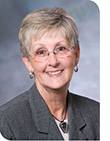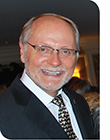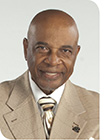In Praise of the Educator
SINCE LAUNCHING THE ICONS OF EDUCATION AWARDS PROGRAM IN 2009, INGRAM’S HAS BEEN PRIVILEGED WITH OPPORTUNITIES TO PROFILE DOZENS OF PEOPLE WHO HAVE DEDICATED THEIR LIVES TO THE MISSION OF EDUCATING THE REGION’S YOUTH.
From K–12 levels to community colleges, private liberal-arts colleges and public research universities, we’ve seen the very best of what the region has to offer in teachers, professors and administrators.
There’s always a touch of poignancy, though, in realizing that many of these figures, as with this year’s honorees, are winding down their careers. What they’ve given to education will be difficult to replace. Our hopes are rekindled in knowing that these truly iconic figures are not alone—legions of their colleagues and the very students they once mentored continue to rise through the ranks, picking up the banner and moving forward.
As residents of this region, all of us owe them a collective thanks for lighting the torches of knowledge that are being carried by the next generation. After all, that next generation will assume positions of leadership in business, government and philanthropy in the coming decades, touching all of our lives. And those of us with children, perhaps, owe these educators a deeper gratitude. Like you, they’ve labored to give those new generations the tools that will help them succeed.
Join us, then, in recognizing Ingram’s 2014 Icons of Education.
 Gayden Carruth
Gayden Carruth
Cooperating School Districts of Greater Kansas City
Her teacher’s question seemed innocuous enough: “Gayden, do you like fifth grade?” Yes, came the reply. “Good, because that’s where you’re going to stay if you don’t stop talking in class.”
Gayden Carruth can laugh about that exchange these days, but the measured steps her teacher showed in getting a straying fifth-grader to shape up—then to overcome her shyness by directing a school play, then to build her self-confidence with a lead role in another play—were absolutely instrumental in leading her to her own path as an educator.
“I thought she was the most wonderful woman who ever lived,” says Carruth, retired superintendent of the Park Hill School District. “I saw the difference she made for me, and over the years, I’ve seen the difference that teachers have made for other people.”
In a career that has covered nearly 43 years, Carruth worked in Mississippi, Minnesota and Virginia, both as a teacher and an administrator, before making her way to Kansas City, taking the Park Hill job in 1994. She retired from that position in 2005 and is now executive director for the Cooperating School Districts of Greater Kansas City, extending her influence into 30 districts around the area.
“My classroom has changed, but I still consider myself a teacher,” Carruth says. “It didn’t matter whether it was a classroom of students or, as superintendent, a seven-member classroom with the school board, or an entire staff or entire commun-ity—you’re always engaged in the process of teaching.”
A career in K–12 education—bolstered in recent years with a higher-education perspective as a member of Park University’s board of trustees—has given Carruth keen insights into what children need.
“What I do know,” she says, “is that all children can learn. Not at the same rate, not at the same pace. But I can go to my grandchild’s pre-school and sit there and tell you by observing who got read to at home before preschool.” And, by visiting a kindergarten, to tell which children have attended preschool. “I’m a very strong advocate for early learning, early childhood education; absent those, we know what the algorithm is—with-out preschool, a kindergartner is two years behind everyone else,” she says.
Helping so many close that gap over the years has been her reward, regardless of the role she was playing—teacher, administrator or policy maker. “I’ve learned as much from my mistakes as my successes,” Carruth says. “What I feel best about, I like to think, is that in every position I’ve held, I left that organization better than it was when I came.”
 Michael Droge
Michael Droge
Park University
High school valedictorian. A Fullbright scholar. Doctorate in neuroscience, running his own research lab. And now, president of Park University, earning national accolades for its efforts to expand access to higher education around the world. Wherever he’s gone in nearly 45 years since leaving Stanley High School (since absorbed into Blue Valley High) in southern Johnson County, Michael Droge has been all about superior performance.
A self-described “Kansas farm boy,” Droge came from a place where college wasn’t in the cards for most kids. “Thanks to my family’s encouragement, jobs, scholarships and school loans, college was possible for me,” he says. It didn’t hurt that his dad, who worked on what was then Hallmark Farm, provided a connection to Bill Harsh, an executive at the greeting-card company. That made him part of a network that eventually included Don and Adele Hall, who “personally took an interest and encouraged me to attend college,” Droge says. They also had a job waiting for him each summer. He earned degrees in biology and German at KU, then started charting a career course. “I did not know then what my place would be,” Droge says, “but hoped that it would somehow involve a university.”
It did. After a year of study in Germany, he earned the Fulbright, which led to a master’s in zoology at Texas Tech. He then earned his doctorate at the University of Texas Medical Branch in Galveston, doing lab work in spinal-cord research on pain pathways.
“I have always had a passion for teaching as well as research,” says Droge, who joined the faculty at Texas Women’s University and ran his own externally funded research lab. The break from lab coat to business attire came in 2000, when he became dean of graduate studies and research, overseeing 100 graduate programs (23 of them doctoral), serving 4,000 graduate students.
Two years later, he seized on an opportunity to come back home as provost at Park. “The more I learned about Park, the more enthusiastic I became about joining the university,” he says. He cites Park’s history of providing affordable, quality education for a diversity of learners, and relishes both its national footprint and its global reach. Approximately 700 international students from over 100 countries currently study at Park, he says.
In 2009, he became president at Park, which last month was recommended for the maximum 10-year accreditation from the Higher Learning Commission follwing an evaluation conducted in the fall. His most significant contribution to higher education, Droge says, “has been advancing access for populations of students who have been traditionally underserved by higher education.” Among them are minority and low-income students, first-generation college students, working adults and current or former members of the military.
 John Rich
John Rich
Emporia State University
Years later, John Rich still remembers her from his accounting classes at Emporia State University: Thin and frail, head secured upright by a body brace. With a personality that saw a wheelchair not as a means of confinement, but as her liberation. “She was a beautiful young girl with a bright smile and charming personality,” Rich remembers, capable and exceptionally motivated. “On the snowy and coldest days, she was always in class even though most of her classmates could not manage to get there. She wanted to live as full a life as she could and to find a way to do her thing—to be productive and purposeful.”
She did earn her degree and went back to her native Wichita to start a career that lasted only a few short years. “One morning, her parents discovered that she had passed on during the night—her frail heart had given out,” Rich remembers. “I am very fortunate to have known her and to have shared the Emporia State experience with her. She exemplifies what it is fundamentally ‘all about.’ I gained much more from her than she did from me.”
That kind of connection was not an anomaly in the 46 years since Rich became an instructor at ESU. He became an assistant professor after two years, then rose through various administrative roles that included vice president of academic affairs, associate dean for the school of business, and interim dean, and he co-chaired the university’s Now & Forever campaign to mark its sesquicentennial last year.
It’s been a decidedly different path than the one envisioned by an Oklahoma State University freshman back in 1963. “My goal was to be a high school teacher and basketball coach,” Rich remembers. “However, during my first education class, I realized that I did not enjoy the preparation for being a teacher and did not want to spend my time there.” Friends had told him about the challenges of accounting, “so I thought I would give it a try.” Bingo: It was both challenging and rewarding, he said, but there was something more to it. “As I became more aware, I was impressed by the role of the accounting profession in our society and the contribution it makes to the functioning of our economic system.”
A colleague in O-State’s audit department, where Rich worked as a student, passed on a job at ESU, but steered Rich that way, and the rest is Hornet History. Working with students, he says, has provided a chance to teach the basics, but “I would like to think I am not only an instructor of accounting, but also have a role in the personal and professional development of students,” he says. As a professor, he relishes having been “part of a student-centered environment that helps our students and alums value and treasure their Emporia State experience.” And as an administrator, he was deeply involved in the business school’s attainment of international accreditation by the Association to Advance Collegiate Schools of Business—a 20-year process of continuous improvement.
 Dale Cushinberry
Dale Cushinberry
Topeka Public Schools
It’s easy for Dale Cushinberry to remember the successes, like the homeless kid who got on track academically at Highland Park High School, played junior college basketball, earned a college degree and now plays pro basketball in China. It’s a little tougher to think about the 19 student funerals—mostly the result of violence—he spoke at during his tenure there, including 16 years as principal.
But what Cushinberry did on those somber occasions reveals exactly what kind of educator he was. “It’s difficult to come up with words that adequately describe how you feel” at times like that, Cushinberry says. “So I would make few comments and then give a homework assignment to the living: I’d tell them that the best way to honor that student is to live a life that their classmate would have been proud of, and would have loved the opportunity to live himself.”
In a career that took him to just about every level of education in Kansas—from elementary school teacher to higher education administration—Dale Cushinberry has been all about one thing: Steering students on a path to excellence. It was something he embraced in his own youth, when he twice secured All-American honors playing basketball for Emporia State University.
Pushed by his father to excel, young Cushinberry once had a high school game where he hit his first eight shots, scored a lot of points, snagged rebounds and dished out assists. “But you could never do it good enough for Dad,” Cushinberry remembers, and in the driveway at home that night, his father arched an eyebrow and, rather than praising that performance, said: “You’re pretty satisfied with yourself right now, aren’t you?” Dale was out in the driveway that night, shedding tears and shooting baskets to further improve his technique. “I didn’t agree with his methods,” Cushinberry says, “but I did agree with his results.”
A firm believer in the need to restore funding for skills-based training, as well as artistic and cultural offerings, in K–12 education, Cushinberry was a teacher, coach, counselor and administrator for 31 years in the Topeka school system, including that run at Highland Park, his own alma mater. He also logged seven years at Washburn University, and his many civic efforts include a stint on the state’s Supreme Court Nominating Commission.
What mark did he leave on education before his retirement in 2010? “I would like to think that I was equally concerned about life scores as test scores,” Cushinberry says. “I personally believe that if you improve the life score, the student’s test score comes up automatically.”
You are never able to accomplish much in life unless you are willing to do the work to prepare yourself, he says: “So if you are prepared, your chances for success are greatly enhanced.”
